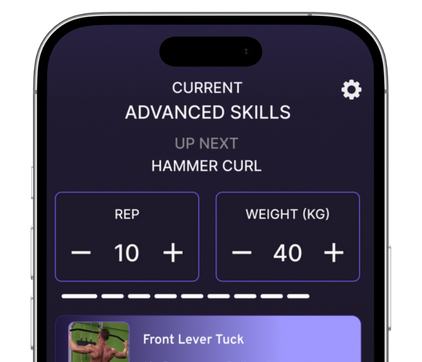How to Do the Perfect Peacock Pose (Mayurasana) - Complete Guide
Want to master Peacock Pose — the ancient arm balance that builds incredible core strength and wrist stability? You're in the right place.

Perfect Peacock Pose (Mayurasana) Technique
Peacock Pose (Mayurasana) is one of yoga's most challenging traditional arm balances, requiring exceptional core strength, wrist flexibility, and mental determination. This ancient pose is said to stimulate digestion and detoxification while building incredible upper body strength. The pose resembles a peacock with its tail feathers spread, creating a beautiful horizontal line with the entire body balanced on the hands. ChAIron's AI coaching ensures proper progression, safe wrist alignment, and optimal core engagement for this demanding pose.
Step-by-Step Form Guide
- Hand Position:Place hands on floor, fingers pointing toward feet, wrists together
- Elbow Placement:Press elbows together into lower ribs/upper abdomen
- Head Down:Lower forehead to floor, knees on upper arms
- Leg Extension:Straighten legs back, creating straight line from head to toes
- Balance Point:Shift weight forward, lift head, balance on hands only
Common Mistakes to Avoid
- Attempting without adequate wrist and forearm preparation
- Placing hands too wide apart or fingers wrong direction
- Not pressing elbows firmly into abdomen for support
- Rushing to lift legs without establishing upper body balance
- Not engaging core muscles to maintain straight body line
- Holding pose too long initially, causing wrist strain
AI Coaching Benefits
ChAIron's computer vision analyzes your push-up form in real-time, providing instant feedback on:
- Wrist positioning and hand placement
- Elbow position and core connection
- Body line straightness and alignment
- Weight distribution and balance point
- Safe progression and hold duration
Master Your Exercise with AI Coaching
Perfect your exercise technique with real-time feedback and personalized coaching. Start training today and build strength with every rep!



.png)
.png)